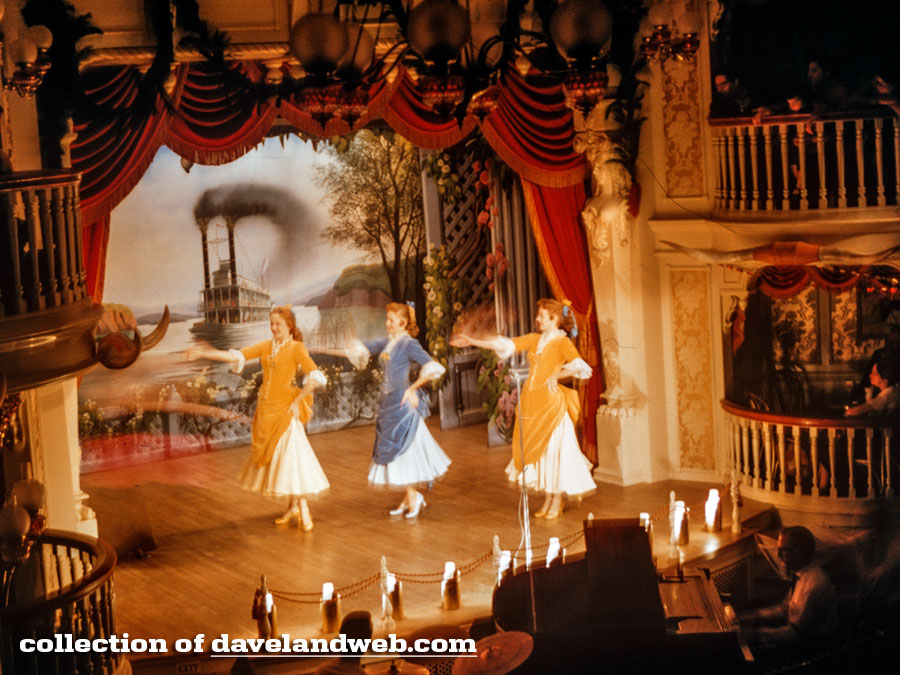
In these rare January 1957 photos, you can get a vintage view of what an actual Golden Horseshoe show as like. I am just as fascinated by the art on the curtains as I am by the performers:
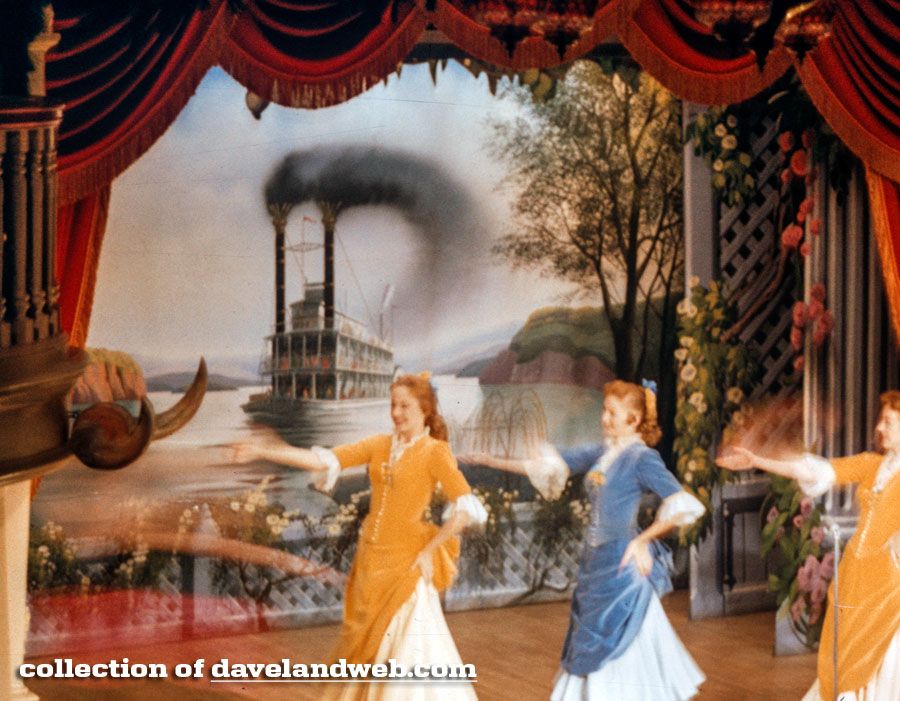
Betty Taylor, as Slue Foot Sue, wows the audience:
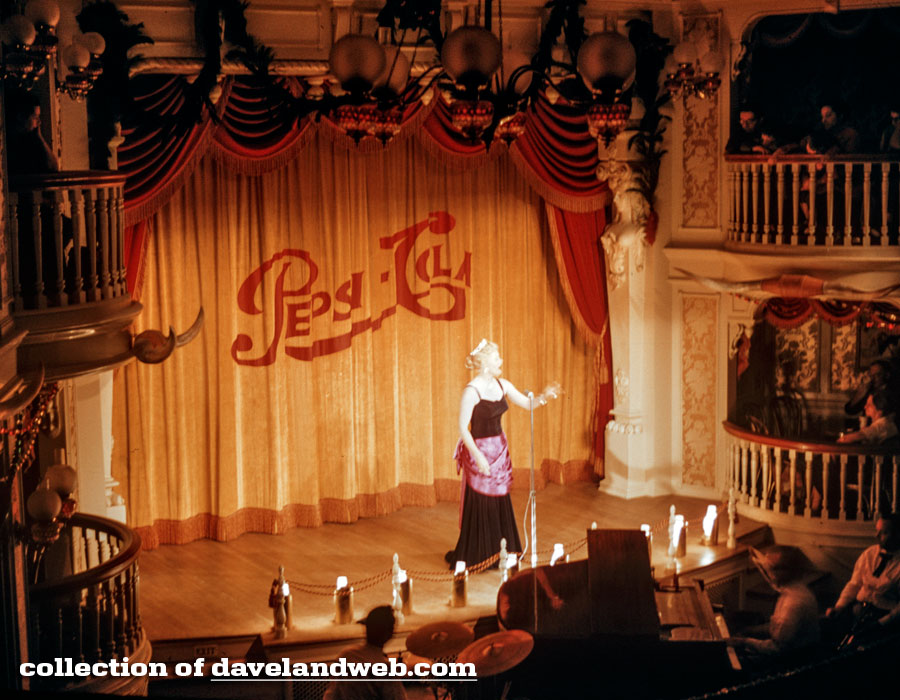
Here, the legendary Wally Boag appears to be making his signature Boagaloons:
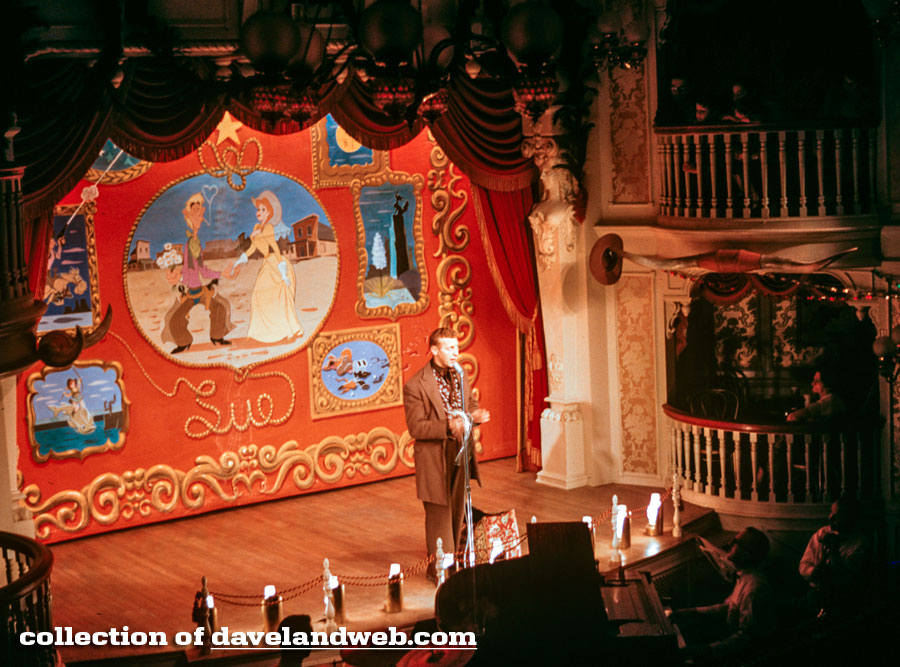
What a great view of the curtain featuring the cartoon characters Pecos Bill and Slue Foot Sue:
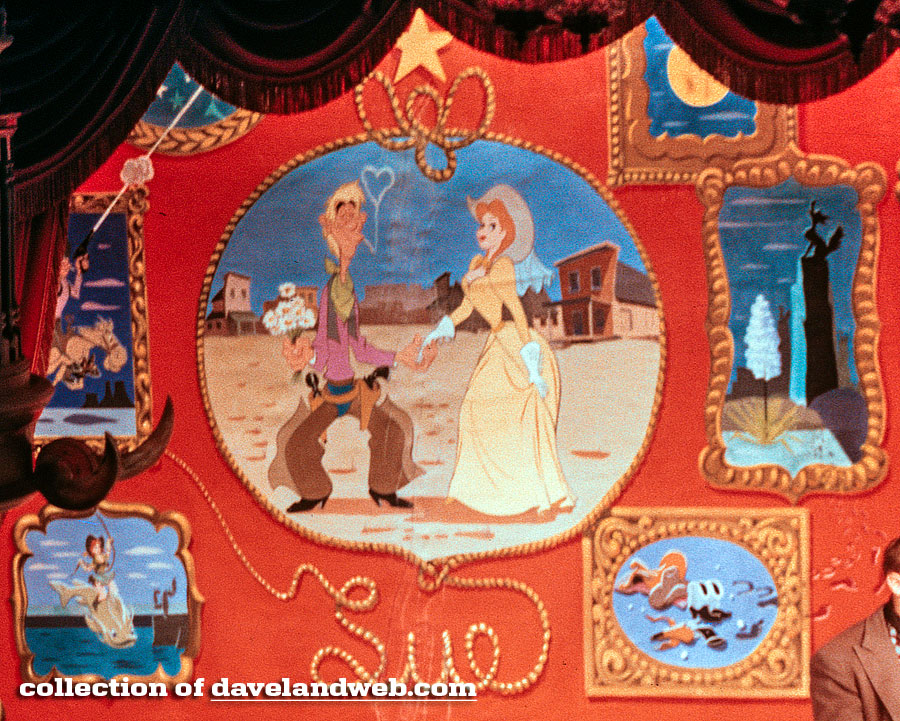
See more vintage & current Disneyland Golden Horseshoe Saloon photos from my collection on my main website.

6 comments:
WOW WOW WOW!!!!! Awesome photos!
Heh Dave - here's a new word for ya - those are called scrims (or a scrim) in 'theater land!'
(Actually, a scrim is see-through if there is light behind it. Those are curtains. The stage isn't deep enough for a scrim)
Great shots of the cast of a great show. Wish they would bring back that kind of show again.
The dancing girls look positively demure in these photos.
There's all sizes of scrims - maybe there's some regional understandings of the definition possibly. I worked in TV/film as well as theater and we used scrims of all shapes and sizes - both see through (with lighting) and non. You can roll down or push into place scrims (on frame sets) with or without painted graphics on them. I've used scrims as small as little window size - some costumers use them as well. I always heard them call various things I would have called veils over a face, scrims.
Looking back at the photos again Dave, clearly the Pepsi Co is a secondary curtain. But the flat ones with detailed graphic art on them look to be what I have learned to call scrims in my years tagging around with my folks from studio life and my own first tastes of theater work I started doing in little community theater as a kid. I have a degree in theater arts from USC and my formal training called anything that is not a secondary curtain (one that draws in on established ropes with draping features) a scrim. We used a lot of scrims on stage back walls no matter the depth of a limited space stage. They can help to make a small stage look larger (like these with the additional perspective). Likewise, they can chop down a stage space to make it appear closer to the audience without a cavern like look which is an issue with some larger stages. Before CGI, scrims were imperative in film, tho the use of green/blue screen was used a lot by the time I was tagging around with my folks being a studio brat - just depended on what the set designers/director wanted the effect to be. I’ve seen some amazing scrims done on frame sets that you would swear are ‘walled’ film/TV set partitions. Those were called non-transparent scrims. BTW, I did most of my grade schooling at Warner Brothers in the Valley (tho I was shoved into a few other studio classrooms along the way - including an on location set classroom Disney had for Pollyanna up in Santa Rosa). It was one of the 'perks' they use to tell employees was an option for them, which somehow was supposed to help justify weak salaries!
Post a Comment